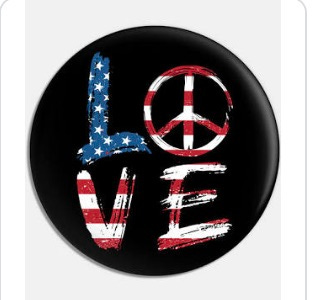Hate the War, Honor the Warrior
Even after 57 years it seems incomprehensible. My high school friend and swimming teammate, Fred West, was killed in Vietnam, only a few weeks into his tour of duty.
Fred was a year behind me in high school and, as we were not particularly close, I was unaware that he had enlisted in the Marines immediately after graduating. I’ll never know what led Fred to join the Marines. He was a gentle, genial, seemingly uncomplicated guy, and I knew no one else who joined the military.
The news of his death was a profound shock. In 1965, the war was distant and impersonal, of minor relevance to my friends and me. Fred’s death at age 18 closed that distance. Little did I know that a year later I would be drafted into the Army and faced with the possibility that it could happen to me too.
I think of Fred on each Memorial Day as a tug on my conscience as I navigate the odd juxtaposition of Memorial Day’s true purpose and its cultural place as the symbolic, celebratory start to summer. These two things can’t really be reconciled.
With my own induction, the war transitioned from an abstraction to a nightmare - quite literally. I would occasionally dream of combat, the images informed by newsreels of firefights in dense jungles, muzzle flashes coming from all directions. Then, in Basic Training, advanced infantry training and Officer Candidate School, the muzzle flashes came from my rifle and my bayonet was thrust into straw men made to look like the enemy. We were taught, not too subtly, to hate the “gooks,” as we prepared to kill them before they killed us. It was a perversely effective process.
I lucked out and never saw Vietnam, except from the safety of 30,000 feet on my way to a posting in Thailand. But many of the friends I made during a year of training weren’t so lucky. My weekly review of Stars and Stripes would reveal another loss, printed in plain type; whole, complicated human lives gone, reduced to simple listings - alphabetized casualties of an immoral war.
By the time I might have been sent to Vietnam as a platoon leader, I had considered refusing, or deserting. The futility and questionable purpose of American involvement had become clearer and it hardly seemed cause for self-sacrifice. Looking back with more honest perspective, I don’t think I would have refused or deserted. We males are socialized to be brave and stoic. Despite intellectual and moral clarity about the war, the conditioning toward unquestioned duty and the need to prove myself would likely have prevailed. Only in subsequent years did I know that true bravery would have been to refuse.
We should have learned from Vietnam, but we have not. Nearly every military action since then has been fraught with the same hubris and deceit. Just as it is impossible to justify Fred West’s death as “in a good cause,” no life lost in Iraq or Afghanistan has been “in a good cause.”
So how does one reconcile this tension? I suppose the only reasonable way is to hate the war and honor the warrior, yet that is a terribly painful process for loved ones. It is, naturally, easier to accept the loss of life in a noble cause. This is why veterans are honored for defending our freedom, even when nothing about our freedom was really at stake.
On Memorial Day we must honor every lost life with reverence and respect. Like my friend Fred, every man and woman who dons a uniform does so with noble intent, no matter the ignobility of the politicians who send them to war. Service should be honored, but it is our profound responsibility to insure that no lives are lost in vain - for political vanity.
The greatest honor we can bestow on our troops is peace.




